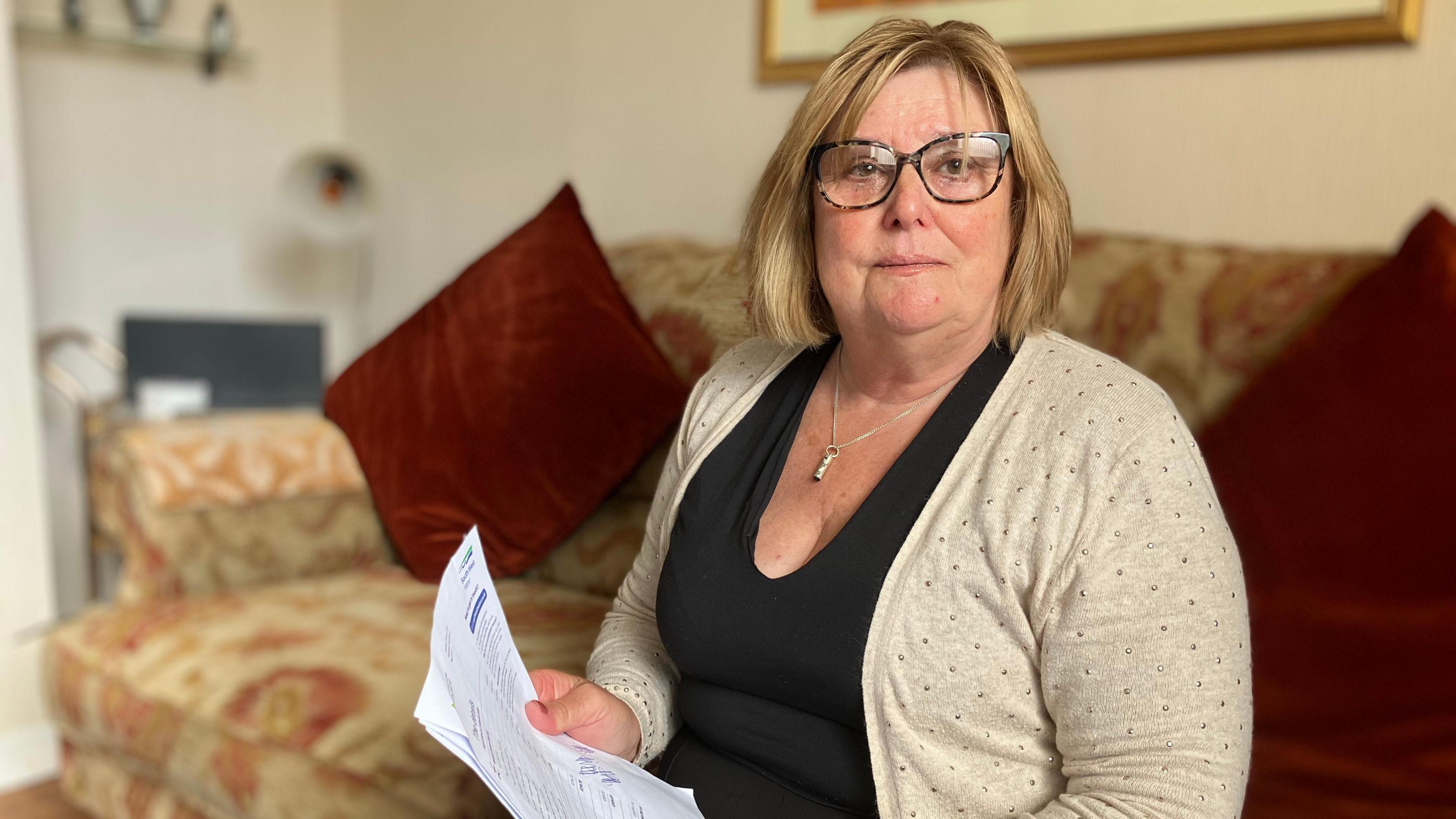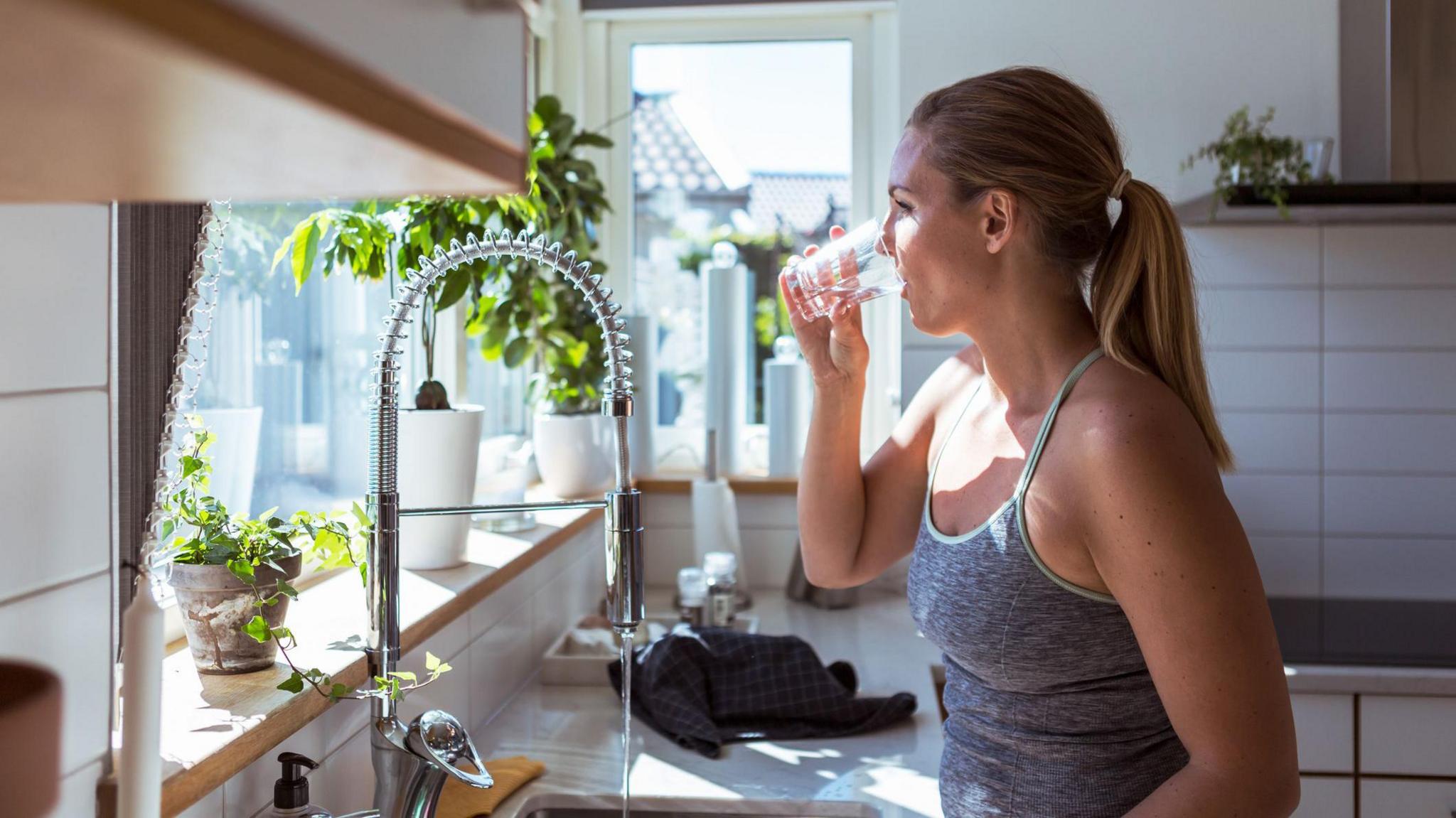Water firm uses drones and satellites to cut leaks
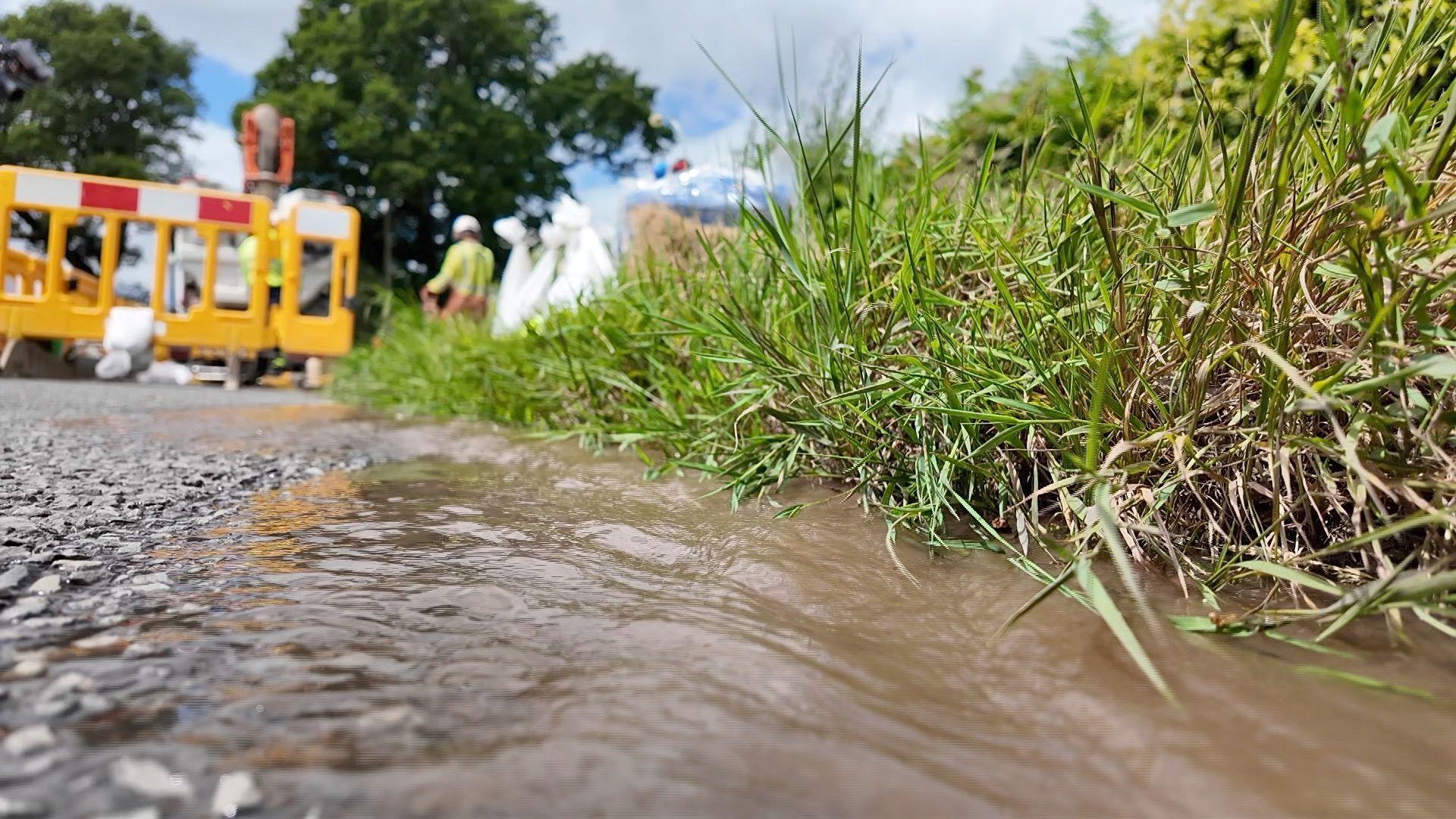
South West Water said it is using "digital detection techniques" to find leaks, including "drones and satellites"
- Published
Drones and other "digital detection" technology are being used by a water company to cut leaks on its network, bosses say.
South West Water (SWW) has faced criticism over its leakage rates, including in a letter sent by the government and industry regulators in October 2024.
The company said it had "invested heavily" and that the amount of lost water to leakage fell in the year 2024/25 compared to the previous year.
The Consumer Council for Water (CCW), which represents water customers, said "SWW has a long way to go to prove to people it has leaks on its network under control".
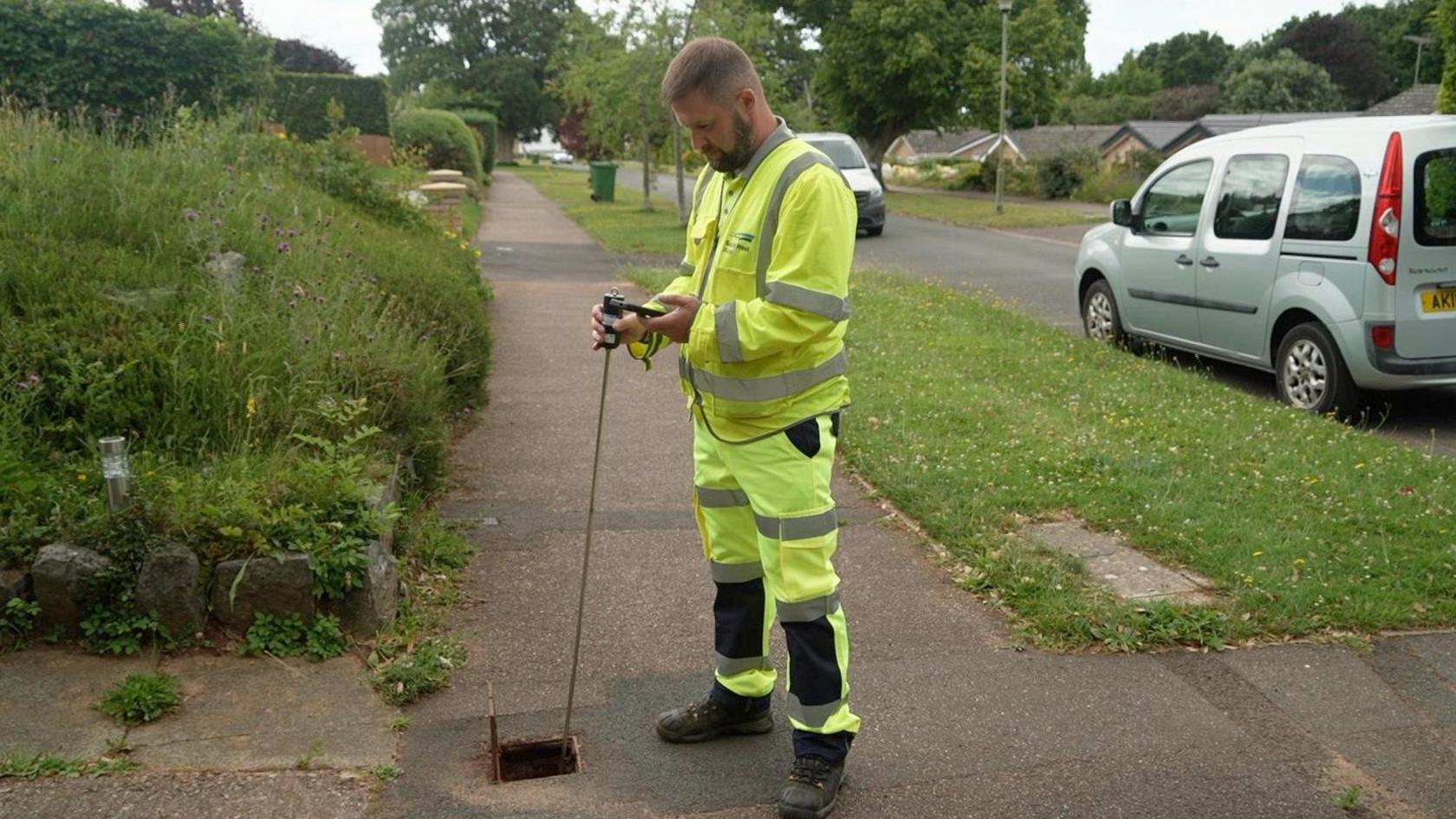
Digital detection teams take sound recordings to help identify the location of leaks
Karl Little, leakage delivery manager for the utility, said: "We understand people's frustrations.
"We have reduced leakage by 10 million litres a day. We've repaired more than 16,000 leaks in the last year.
"We've now got more than 120 field technicians carrying out checks, plus office staff analysing data.
"We've invested heavily in digital detection, with teams taking sound samples to find leaks".
Mr Little also said drones and satellites were being used to help find leaks faster.
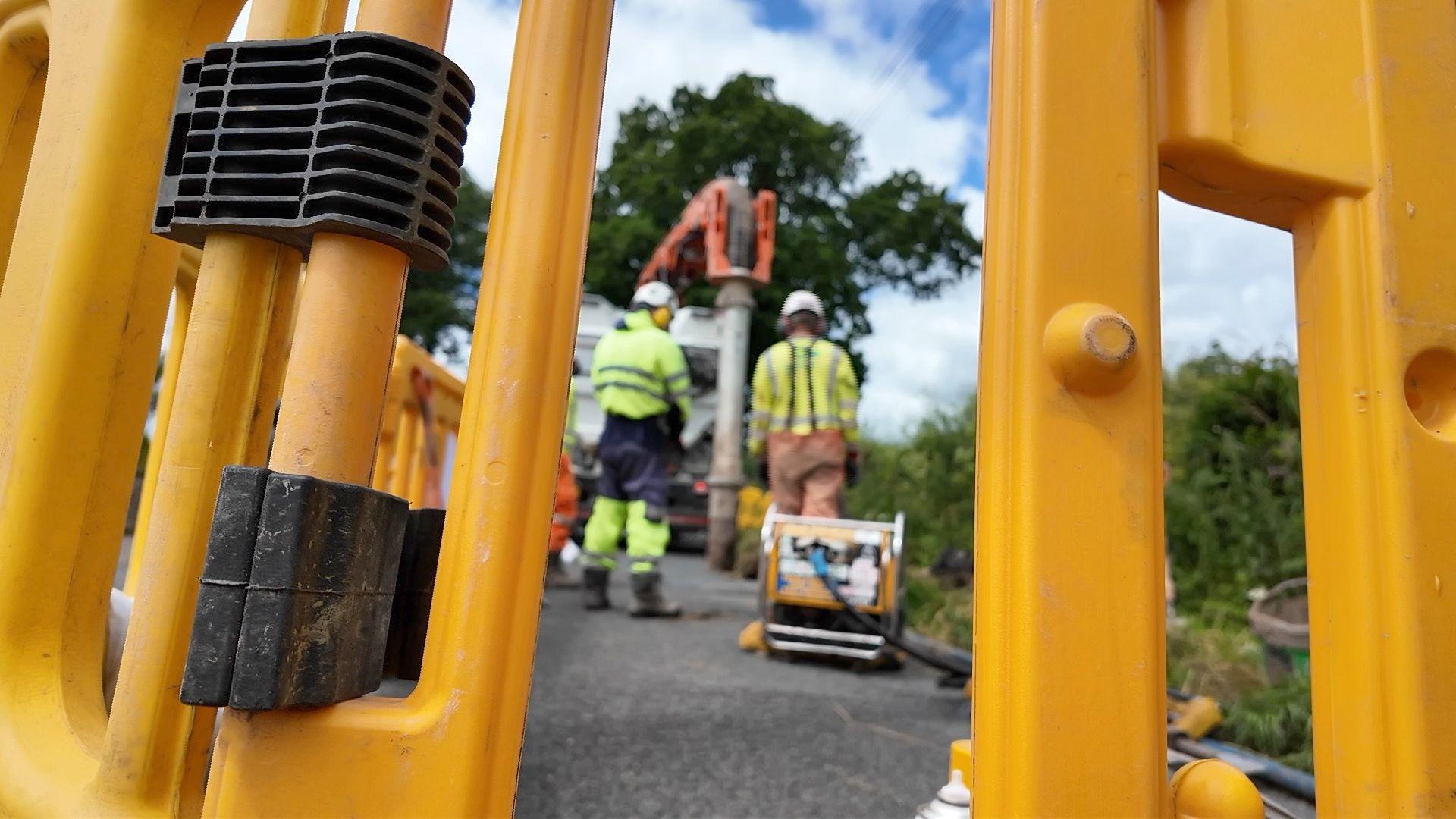
SWW has been told it was a "long way to go" to prove to people leaks are under control
The latest average annual leakage data from the SWW showed 107 million litres of water a day (Ml/d) were lost due to leakage in 2024/25, down from 118 Ml/d the year before.
However, that was up on 2022/23, where 112 ML/d were lost.
"We know that leakage – particularly visible leaks – really gets under the skin of customers, especially when they are being asked to save water at home", said Cath Jones, from the Consumer Council for Water (CCW), which represents the views of water customers across the country.
"South West Water has work to do to become a leading performer on leakage and has a long way to go to prove to people it has leaks on its network under control" she added.
Performance 'closely monitored'
In a letter sent to SWW by the Department of Environment, Food and Rural Affairs (DEFRA), Ofwat and the Environment Agency in October 24, SWW was warned to "improve its performance on leakage as a priority" after average annual leakage rose in 2023/23 by 6.19 Ml/d.
The latest figures from the company show that leakage rates have since improved, although those statistics are yet to be ratified by the industry regulator.
"We fully support the efforts of all water companies to tackle leakage and have challenged South West Water to reduce loss by 31% in the 10 years to 2030", said regulator Ofwat.
"Performance is closely monitored, we hold regular review meetings with the company, and do not hesitate to take robust action when we find any supplier has not met its commitments.
"Between 2020 and 2024, more than £3.2m was handed back to South West customers due to underperformance on leakage.
"Over the next five years, we have provided South West Water with an allowance of £17.9m for work on leakage reduction".
South West Water provides water and sewerage services to about 1.8 million customers in Devon and Cornwall, the Isles of Scilly, plus small parts of Dorset and Somerset.
Follow BBC Devon on X, external, Facebook, external and Instagram, external. Send your story ideas to spotlight@bbc.co.uk, external.
Related topics
- Published23 May
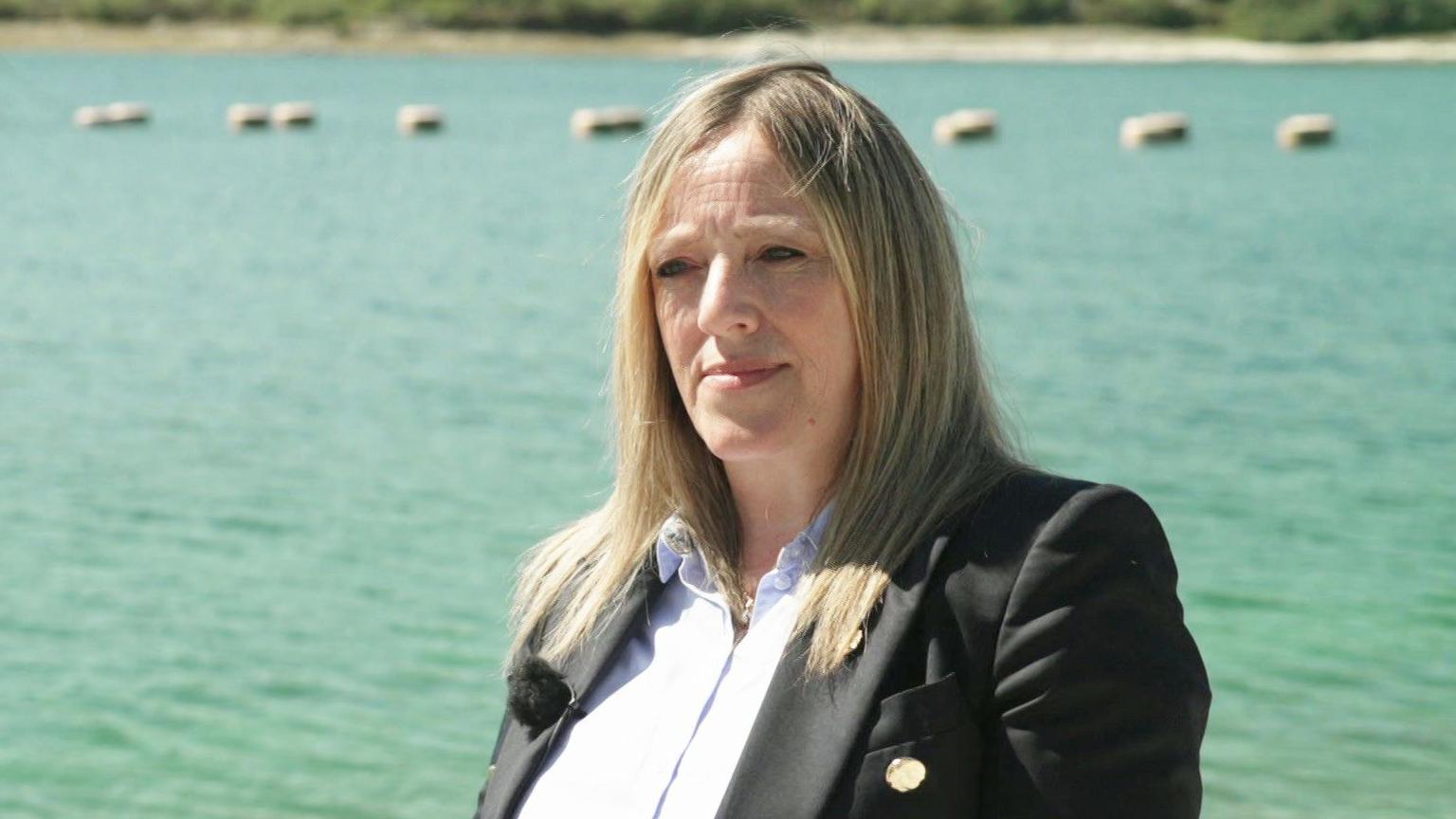
- Published17 April
